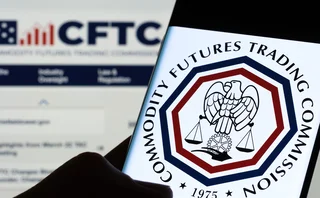
Fed fines ABN Amro $80 million
The US Federal Reserve has ordered ABN Amro to pay $80 million in fines for lacking adequate risk management that could identify money laundering activities in its overseas branches. According to the order released on December 19, the Amsterdam-based bank must also submit plans for a new global risk management and compliance system within 90 days.
The order claims overseas branches developed “special procedures” to circumvent regulation, in particular the Iranian Transactions Regulations and the Libyan Sanctions Regulation, which restricts the types of transactions banks can conduct on behalf of these governments.
According to the order, prior to August 1, 2004, ABN Amro overseas offices modified documents to eliminate any references to a bank owned by the Iranian government and another one owned by the Libyan government. Thereafter, ABN Amro’s New York offices and Chicago office failed to notice the papers were doctored, issuing letters of credit and transferring funds on behalf of the restricted entities.
A total of $40 million will be paid to the Fed and the US Treasury Department’s Office of Foreign Assets Control. The New York State Banking Department and the Illinois Department of Financial and Professional Regulation will receive $20 million and $15 million, respectively. ABN Amro will also make a $5 million voluntary payment to the Illinois Bank Examiners’ Education Foundation.
Only users who have a paid subscription or are part of a corporate subscription are able to print or copy content.
To access these options, along with all other subscription benefits, please contact info@risk.net or view our subscription options here: http://subscriptions.risk.net/subscribe
You are currently unable to print this content. Please contact info@risk.net to find out more.
You are currently unable to copy this content. Please contact info@risk.net to find out more.
Copyright Infopro Digital Limited. All rights reserved.
As outlined in our terms and conditions, https://www.infopro-digital.com/terms-and-conditions/subscriptions/ (point 2.4), printing is limited to a single copy.
If you would like to purchase additional rights please email info@risk.net
Copyright Infopro Digital Limited. All rights reserved.
You may share this content using our article tools. As outlined in our terms and conditions, https://www.infopro-digital.com/terms-and-conditions/subscriptions/ (clause 2.4), an Authorised User may only make one copy of the materials for their own personal use. You must also comply with the restrictions in clause 2.5.
If you would like to purchase additional rights please email info@risk.net
More on Regulation
European Commission changes tune on proposed FRTB multiplier
Banks fear departure from original diversification factor undermines case for permanent relief
Supervisors should be mindful of geopolitical risks, says IMF
Shock events cause sizeable swings in asset pricing, institution’s latest report highlights
Bowman won’t commit to stress-testing the tariff shock
Nominated Fed vice-chair stonewalls calls to run ad hoc scenario similar to 2020 Covid test
Fed’s Bowman to ‘prioritise’ SLR exemption for US Treasuries
Reinstating Covid-era relief is a ‘no brainer’, dealers say, as bond markets reel from tariff chaos
SEC’s Peirce calls for rethink of international standards
Risk Live Boston: regulator rejects international calls for bank-like regulation of investors
Tariff turbulence piles pressure on banks’ VAR models
Backtesting breaches start to mount, but too early to tell if regulatory intervention needed
Trading desks want regulators to face down the NMRF monster
Rule-makers in Australia and the European Union are open to changes to the unpopular FRTB test
CFTC’s Doge-inspired drive to enforcement may fall short
Lawyers doubt guidance on rewards for self-reporting goes far enough







